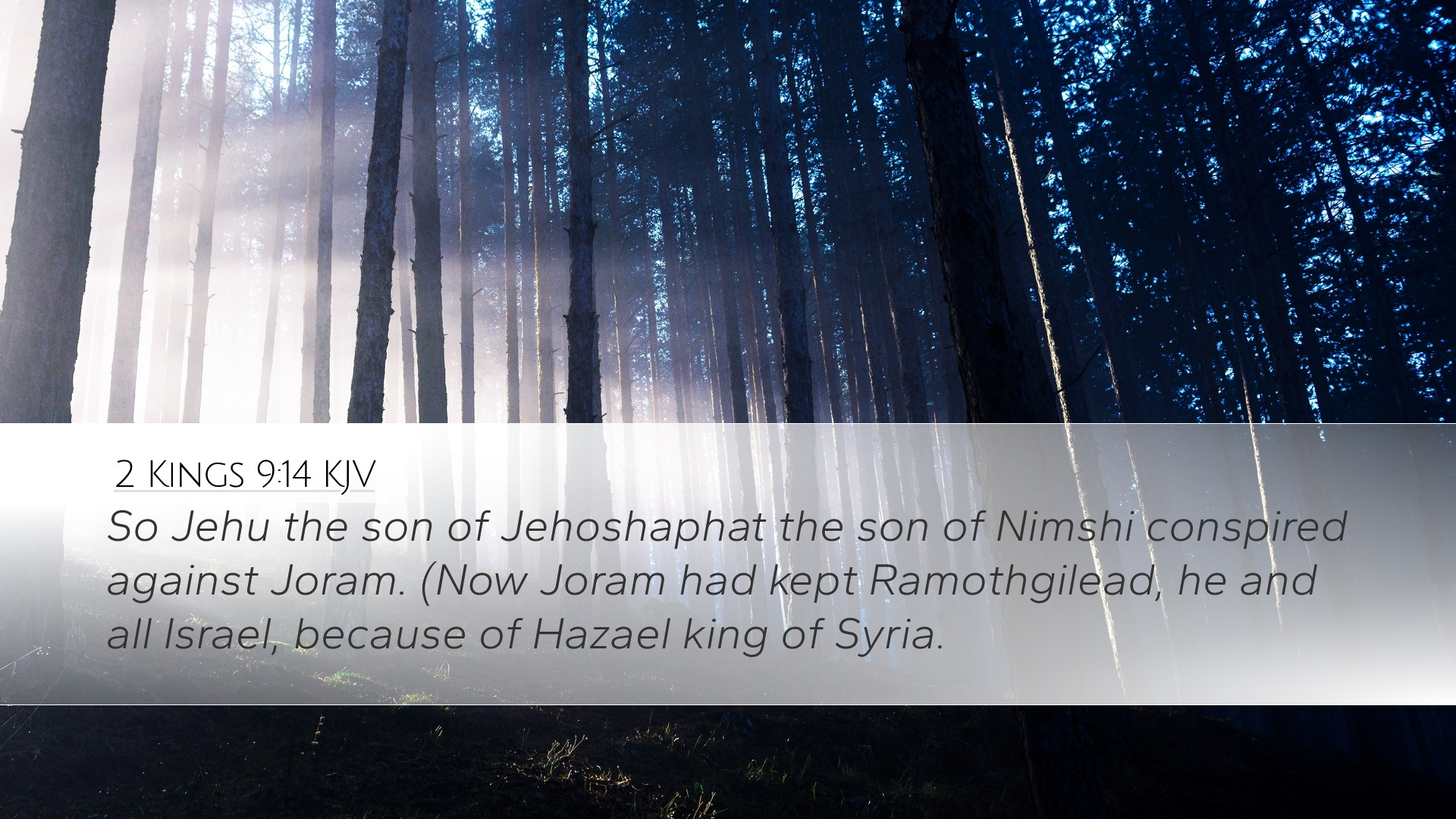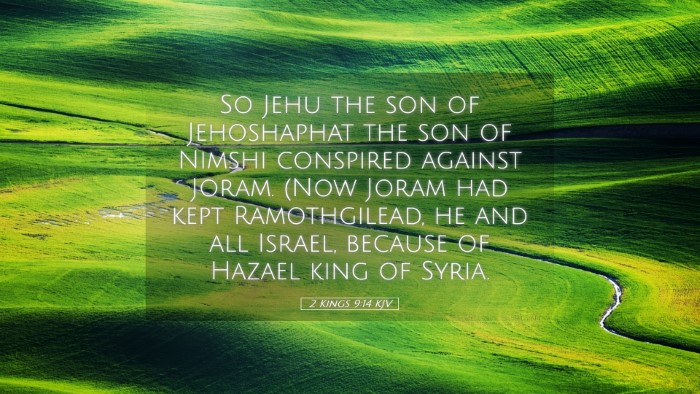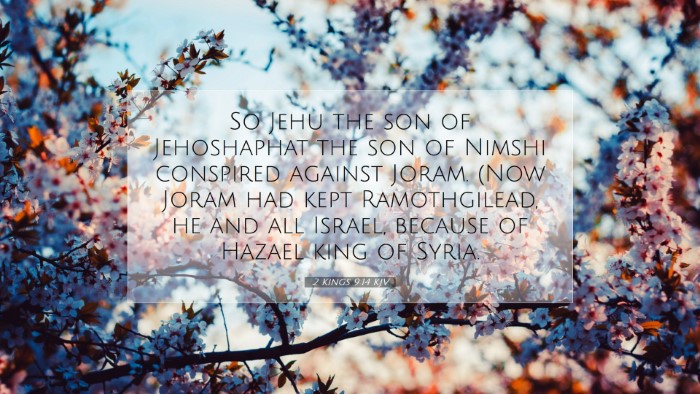Commentary on 2 Kings 9:14
Verse Overview: 2 Kings 9:14 states, "So Jehu the son of Jehoshaphat the son of Nimshi conspired against Joram. Now Joram had been defending Ramoth-gilead, he and all Israel, because of Hazael king of Syria." This verse marks a significant turning point in the narrative of Israel's history, particularly in relation to the judgment upon the house of Ahab.
Contextual Background
The passage occurs in a crucial period of Israel's monarchy. Ahab’s house had led Israel astray from God’s commandments, prompting divine judgment through the prophet Elisha. This verse introduces Jehu, who will ultimately fulfill the prophecy of judgment against Ahab's lineage.
Historical Context
- Political Landscape: The kingdom of Israel was embroiled in conflicts with neighboring nations, particularly Syria. Joram's engagement in Ramoth-gilead highlights Israel's military struggles.
- Judgment on Ahab: The conspiracy against Joram is a direct result of God's judgment against Ahab for his transgressions, including the idolatry and bloodshed associated with his reign.
Commentary Insights
Matthew Henry: Henry emphasizes the significance of Jehu's anointing as a fulfillment of divine prophecy. He points out that this conspiracy is orchestrated by God's directive to bring an end to the idolatrous reign of Ahab's family.
Albert Barnes: Barnes notes that this verse marks a turning point characterized by divine retribution. He elaborates on Jehu's background, suggesting that his lineage places him in a position to enact justice against the house of Ahab, thereby fulfilling prophetic words previously spoken.
Adam Clarke: Clarke provides detailed insight into the roles of Joram and Jehu, including the religious corruption that had permeated Israel during their reigns. He discusses the implications of Jehu's conspiracy, highlighting it as both a military and a spiritual confrontation against idolatry.
Theological Implications
This verse opens up profound theological discussions regarding God’s sovereignty and the execution of judgment. The implications touch upon divine justice, the accountability of leaders, and the prophetic voice in the historical narrative.
- God’s Sovereignty: The orchestration of Jehu’s rise to power underscores God’s control over nations and rulers. It illustrates how God raises up leaders to fulfill His divine purposes.
- Human Agency: While divinely appointed, Jehu's actions reveal the complexity of human agency within God's plan. His conspired uprising reflects a blend of human initiative under divine orchestration.
Application for Today
For modern readers, 2 Kings 9:14 serves as a reminder of the consequences of national sin and the need for righteous leadership. It challenges pastors and theologians to consider the role of the church in advocating for justice and morality in society.
The text encourages leaders to seek divine guidance in their decision-making processes, understanding that they are accountable to God for their actions. In a broader sense, the narrative calls for vigilance against idolatry in today’s context, whether that takes the form of misplaced priorities, moral compromise, or societal injustice.
Conclusion
Ultimately, 2 Kings 9:14 is not merely a historical account but serves as a foundational element in understanding God's ongoing narrative throughout Scripture. It calls for reflection on the nature of leadership, the importance of adhering to divine teachings, and the continuous struggle between good and evil within societal frameworks.


